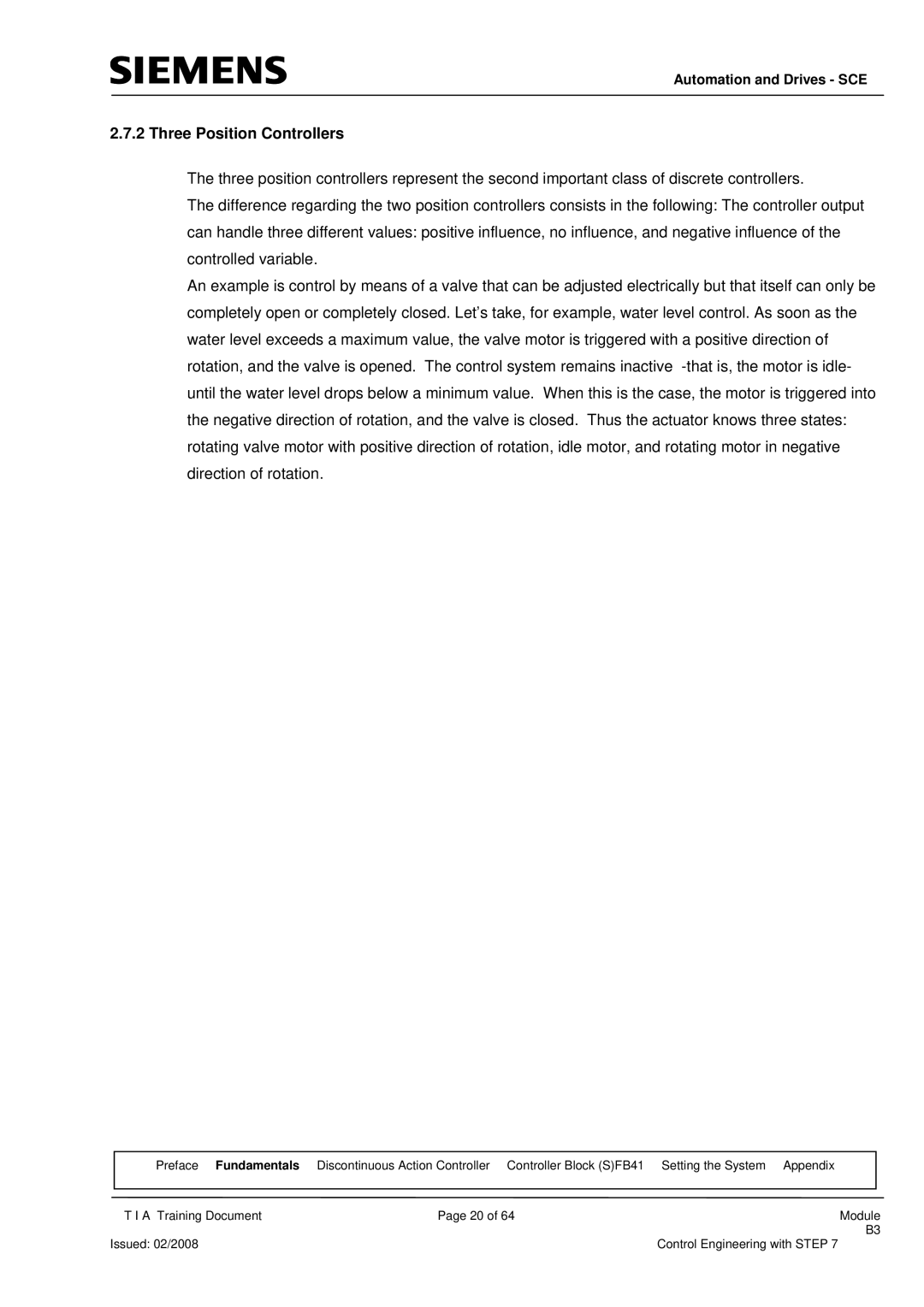
Automation and Drives - SCE
2.7.2 Three Position Controllers
The three position controllers represent the second important class of discrete controllers.
The difference regarding the two position controllers consists in the following: The controller output
can handle three different values: positive influence, no influence, and negative influence of the controlled variable.
An example is control by means of a valve that can be adjusted electrically but that itself can only be completely open or completely closed. Let’s take, for example, water level control. As soon as the water level exceeds a maximum value, the valve motor is triggered with a positive direction of rotation, and the valve is opened. The control system remains inactive
| Preface | Fundamentals | Discontinuous Action Controller Controller Block (S)FB41 | Setting the System Appendix |
|
|
|
|
|
| |
| T I A Training Document | Page 20 of 64 | Module | ||
|
|
|
| B3 | |
Issued: 02/2008 |
|
| Control Engineering with STEP 7 | ||
